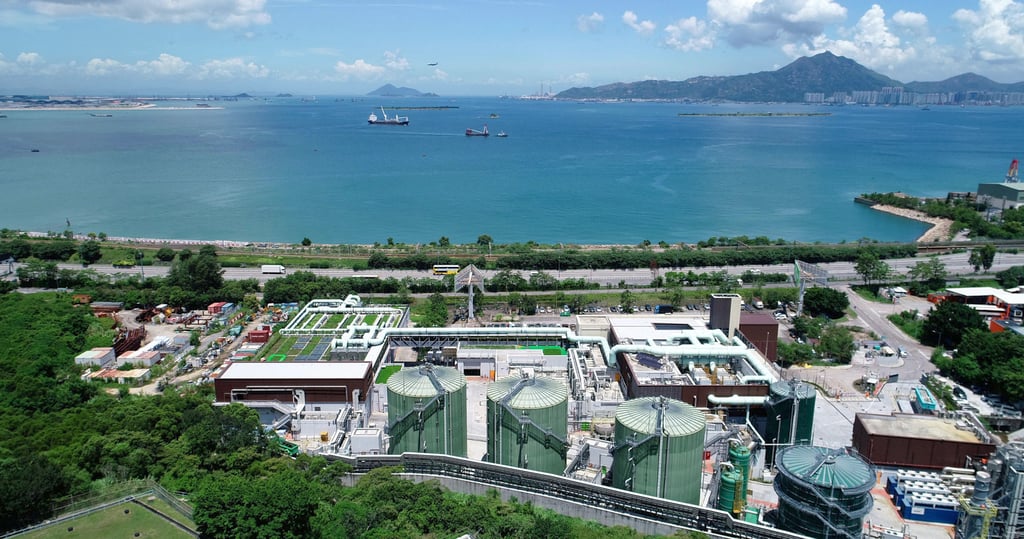Advertisement
Hong Kong’s food waste crisis: how mall owners, restaurants are helping efforts to turn leftovers into electricity
- Unwanted food sent to the government’s pilot processing and recovery centre in North Lantau breaks down to form biogas for power generation
- This provides a sustainable alternative to fast-depleting landfill capacity while preventing the emission of thousands of tonnes of greenhouse gases
Reading Time:3 minutes
Why you can trust SCMP

Some of Hong Kong’s shopping mall owners and food vendors are stepping up their combined efforts to tackle one of the city’s thorniest sustainability issues – food waste.
Spurred by financial incentives and a desire to help fight climate change, they have increased the amount of unwanted food they send to the government’s pilot processing and recovery centre. Called O Park, the facility opened in 2018 in Siu Ho Wan, North Lantau, to provide a sustainable alternative to Hong Kong’s fast-depleting landfill capacity.
The biogas created as the edible material breaks down can fuel power generation while the leftover waste can be turned into compost.
Advertisement
Link Asset Management owns over 50 food markets in Hong Kong, of which more than 90 per cent participate in the “upcycling” effort.
Food waste is a pressing issue for the city as it races to achieve carbon neutrality by 2050.

“Hong Kong’s three landfills are forecast to reach their designed capacity in a few years, which makes it imperative that we seek alternatives to reduce the pressure on them,” said Jeff Mau, the commercial landlord’s director of property management (HK).
Advertisement
Select Voice
Select Speed
1.00x